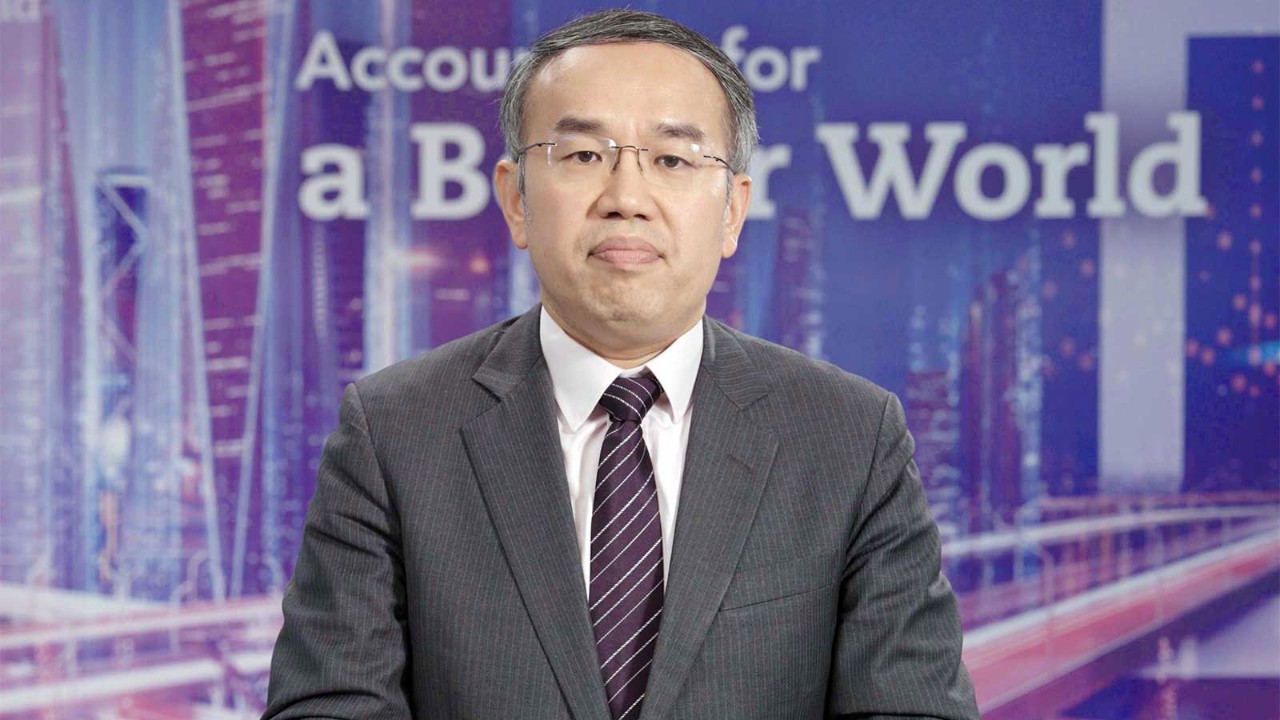
As the global geopolitical situation becomes more complicated and with the world economy going through a period of instability and uncertainty, achieving sustainable economic development in Hong Kong requires strategies that match the changes in the external political and economic environment.
‘Hong Kong could achieve sustainable development by focusing on three sectors, namely a good circle of government revenue and expenditure, the interaction between the real economy and the financial industry, as well as the combination of enterprises, capital and talents,’ said Christopher Hui, GBS, JP, Secretary for Financial Services and the Treasury, Government of the Hong Kong Special Administrative Region (SAR), at the ACCA Hong Kong virtual tax conference in March.
Hui added that apart from introducing measures to enhance competitiveness and exploring new growth vehicles, the SAR should also launch attractive tax policies to maintain Hong Kong’s competitive edge with simple and low tax rates.
‘While focusing on cost-cutting, we also adopt a practical approach to increase revenue’

Balanced outlook
It is essential to maintain a balance between the government’s revenue and expenditure to promote sustainable development and build resilience, confidence and competitiveness.
‘While focusing on cost-cutting, we also adopt a practical approach to increase revenue considering that individuals and enterprises were affected by Covid-19 in the past few years,’ said Hui, adding that the government will reprioritise different programmes as it looks to cut expenditure.
At the same time, it has also introduced a series of new tax policies to increase revenue. ‘While we focus on cutting expenditure, we also try to raise revenue through different measures to maintain the government’s financial viability and promote economic development,’ said Hui.
Financial sector
Strengthening the interaction between the real economy and the financial sector will also improve economic vitality as well as lay the foundations for innovation and growth, according to Hui.
‘The latest budget has proposed a series of measures to attract more enterprises, capital and talent’
Hong Kong’s economic activity recovered in the year after Covid-19, with real GDP growth of 3.2% in 2023.
However, there will still be uncertainties in 2024, impacted by the complex and volatile external environment affecting investment sentiment and capital flows. The Hong Kong government plans to consolidate the momentum of economic recovery in the short term, while promoting more innovation through quality development in the long term.
With this in mind, the government aims to bring in new services and products, as well as stimulating new demand.
‘While the government capitalises on its strengths in financial services, it also needs more support of talent, resources and finance. The latest budget has proposed a series of measures to attract more enterprises, capital and talent to expand its economic capacity and enhance development momentum,’ said Hui.
Hui highlighted that Hong Kong is still an attractive place for family offices and high-net-worth individuals. The New Capital Investment Entrant Scheme has received enquiries and applications from high-net-worth individuals from all over the world, including the Middle East and South-East Asia, since it started accepting applications on 1 March. A recent survey by Deloitte showed that there are more than 2,700 single-family offices in Hong Kong.
‘We need to continue to attract capital, enterprises and talents in order to expand our economic capacity’
In the first half of 2024, the Hong Kong government will introduce to the Legislative Council a proposal to amend the Inland Revenue Ordinance to implement a ‘patent box’ tax incentive. This will reduce the tax rate for profits derived from qualifying intellectual property to 5%.
‘This incentive policy aims to encourage enterprises to devote more resources to R&D and conduct commercialisation transactions making use of patents and other IP protections,’ said Hui. ‘Backed by the development of the financial sector, we hope to stimulate the growth of the real economy, thereby encouraging innovation in the market.’
Expand capacity
‘We need to continue to attract capital, enterprises and talent in order to expand our economic capacity,’ said Hui.
Several government branches, including the Office for Attracting Strategic Enterprises, the Innovation, Technology and Industry Bureau, Invest Hong Kong and the Hong Kong Investment Corporation, will proactively reach out to local and overseas enterprises, and help high-value-added technology and other enterprises to operate in the city, according to Hui.
In terms of attracting strategic enterprises, many more have settled or are planning to expand their business in Hong Kong. ‘Along with the first batch of 30 enterprises, it is estimated that a total of more than HK$40bn of investment will be brought to Hong Kong in the next few years, and about 13,000 jobs will be created,’ said Hui.
‘These enterprises will drive the upstream, midstream and downstream enterprises of the relevant industry move to Hong Kong, thereby promoting the development of the innovation and technology ecosystem.’
In addition, starting from 2025, Hong Kong will apply the global minimum effective tax rate of 15% on multinational corporations with annual gross revenues of €750m or more, as well as apply the Hong Kong minimum top-up tax.
‘In implementing the global minimum effective tax rate and the Hong Kong minimum top-up tax, we will incorporate rules to facilitate an easy way for company compliance to maintain the advantage of Hong Kong’s simple tax regime,’ said Hui.
More information
Access the on-demand webinar for more insights.

